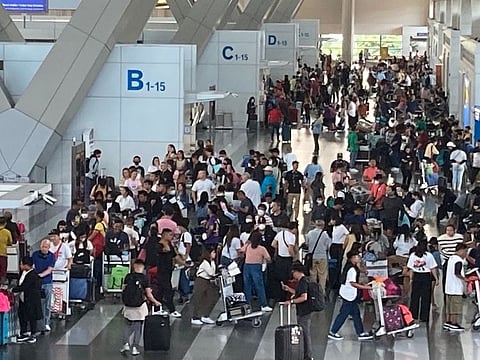DMW integrates OEC into OFW Travel Pass: What UAE-based Filipinos need to know
Filipino workers abroad will soon say goodbye to the OEC as DMW completes its integration

DUBAI: The Department of Migrant Workers (DMW) has officially announced the integration of the Overseas Employment Certificate (OEC) into the OFW Travel Pass, signaling a major digital shift for millions of overseas Filipinos. Through the eGovPH app, the once-separate OEC will now be automatically embedded in the OFW Travel Pass—a move the agency says will streamline processing and eliminate redundant paperwork.
Digital transformation
For decades, the OEC—often described by Filipinos as a 'golden ticket' for departure—has been a required clearance before leaving the Philippines for work abroad. It serves as proof of legitimate deployment, granting exemptions from travel tax and terminal fees. However, for many OFWs, especially those in the UAE, the OEC process meant long queues, repeated appointments, and last-minute stress before flying home.
Under the new system, the OEC’s functions will be absorbed into the OFW Travel Pass, a digital document accessible through the eGovPH app. Once an OFW’s employment is verified by DMW, the app will automatically generate the digital travel clearance. This means workers no longer need to secure a separate printed OEC before flying. DMW Secretary Hans Leo Cacdac described the move as part of the agency’s mission to “cut bureaucracy and embrace innovation” for overseas workers.
What it means for OFWs in the UAE
For the hundreds of thousands of Filipinos working in Dubai, Abu Dhabi, and the Northern Emirates, this development promises both convenience and relief. OFWs can now process their travel clearance remotely, without having to visit DMW branches or endure portal downtimes during peak travel months. The integration also supports the Philippine government’s broader e-governance program, aimed at improving service delivery for citizens abroad.
Still, many OFWs have raised questions about the implementation. Some fear possible technical glitches or confusion at airports during the transition. Airline staff and immigration officers are still undergoing orientation, according to DMW, to ensure the Travel Pass is recognized at all departure points.
DMW said the integration is being piloted in stages and will reach full implementation by early 2026. Around 70,000 OFWs have already benefited from the pilot program, and the agency expects to scale the rollout to more than 200,000 users by next year. Cacdac assured that the department will maintain both online and in-person assistance during the transition period, especially for workers who may have limited access to digital tools.
A paperless governance
The merger of the OEC with the OFW Travel Pass reflects a larger government push to reduce red tape and modernize migrant services. The DMW joins other agencies—such as the Department of Information and Communications Technology (DICT)—in supporting the eGovPH Super App, designed to centralize access to official documents and streamline citizen transactions.
For Filipino workers in the UAE, this may be the beginning of a smoother journey—where government paperwork finally catches up with the realities of life abroad.
Sign up for the Daily Briefing
Get the latest news and updates straight to your inbox







